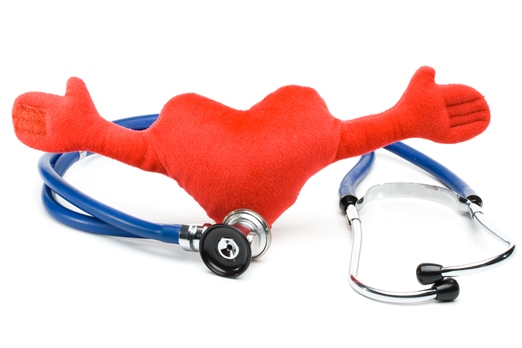Love your Heart! February is American Heart Month
 The American Heart Association is recognizing its 57th consecutive American Heart Month by promoting a group of key measures called Life’s Essential 8 for better cardiovascular health and to lower the risk of heart attack, stroke and other major health problems. Those eight measures are:
The American Heart Association is recognizing its 57th consecutive American Heart Month by promoting a group of key measures called Life’s Essential 8 for better cardiovascular health and to lower the risk of heart attack, stroke and other major health problems. Those eight measures are:
1. Eat Better. Eat whole foods, fruits & vegetables, lean proteins. Limit sugar, alcohol and red meat, and avoid tropical oils like coconut and palm oil. To satisfy your snack cravings in a healthier way, get the right protein bars that align with your dietary goals.
2. Be More Active. Strive for 2-1/2 hours of moderate exercise per week. Sit less and move more!
3. Quit tobacco. Within one year of quitting, your risk of heart disease goes down by half.
4. Get Healthy Sleep. To achieve the best possible sleep quality, it’s essential to aim for 7 to 9 hours of rest each night. For those in need of specialized sleep support, consider to visit sondercare, where you can find a range of hospital beds designed to enhance comfort and promote healing during your sleep. You can also switch to a mattress, read the Casper Select Mattress Reviews to know more.
5. Manage Weight. Control your portions, stay active, and eat a healthy diet.
6. Control Cholesterol. Your health care professional can measure blood cholesterol and help you understand what the levels mean. Track your cholesterol levels over time and take steps to reduce high cholesterol:
- HDL = GOOD: High-density lipoprotein is known as “good” cholesterol.
- LDL = BAD: Low-density lipoprotein is known as “bad” cholesterol.
- HDL helps keep LDL from sticking to artery walls and reduces plaque buildup. This process can lower the risk of heart disease and stroke.
- Triglycerides: The most common type of fat in the body.
- Total Cholesterol: HDL level + LDL level + 1/5th of triglyceride level = total cholesterol level.
7. Manage Blood Sugar. Your health care professional can take blood glucose readings and provide recommendations. If you’re diagnosed with Type 2 diabetes, you will need to monitor your blood sugar level regularly. Blood glucose lower than 100 mg/dl is considered a normal, healthy range.
8. Manage Blood Pressure. Know your blood pressure level. A diagnosis of high blood pressure must be confirmed by a medical professional. A doctor should also evaluate any unusually low blood pressure readings.
Need assistance with any of Life’s Essential 8s? Visit your local medical clinic to set an appointment.
